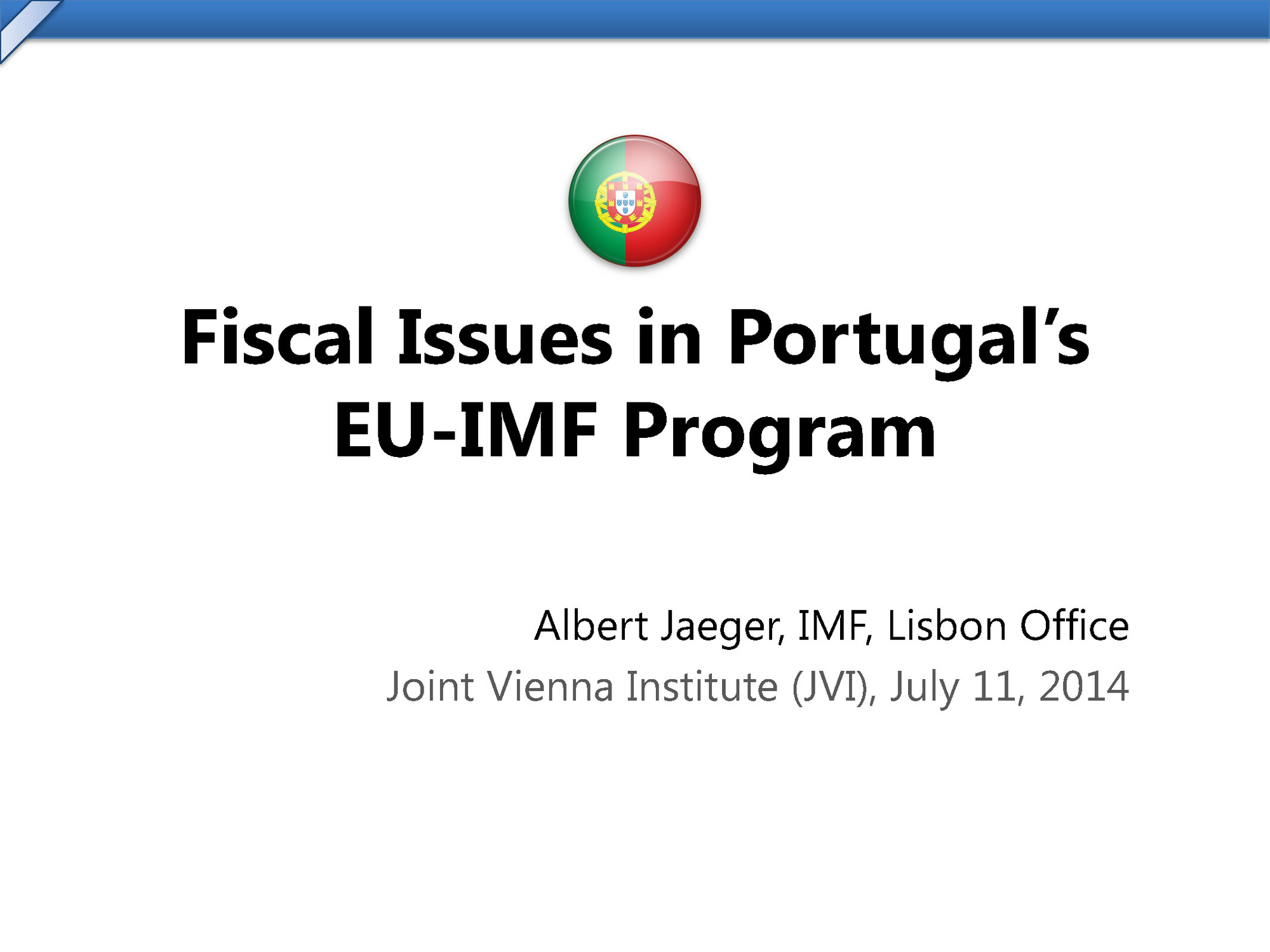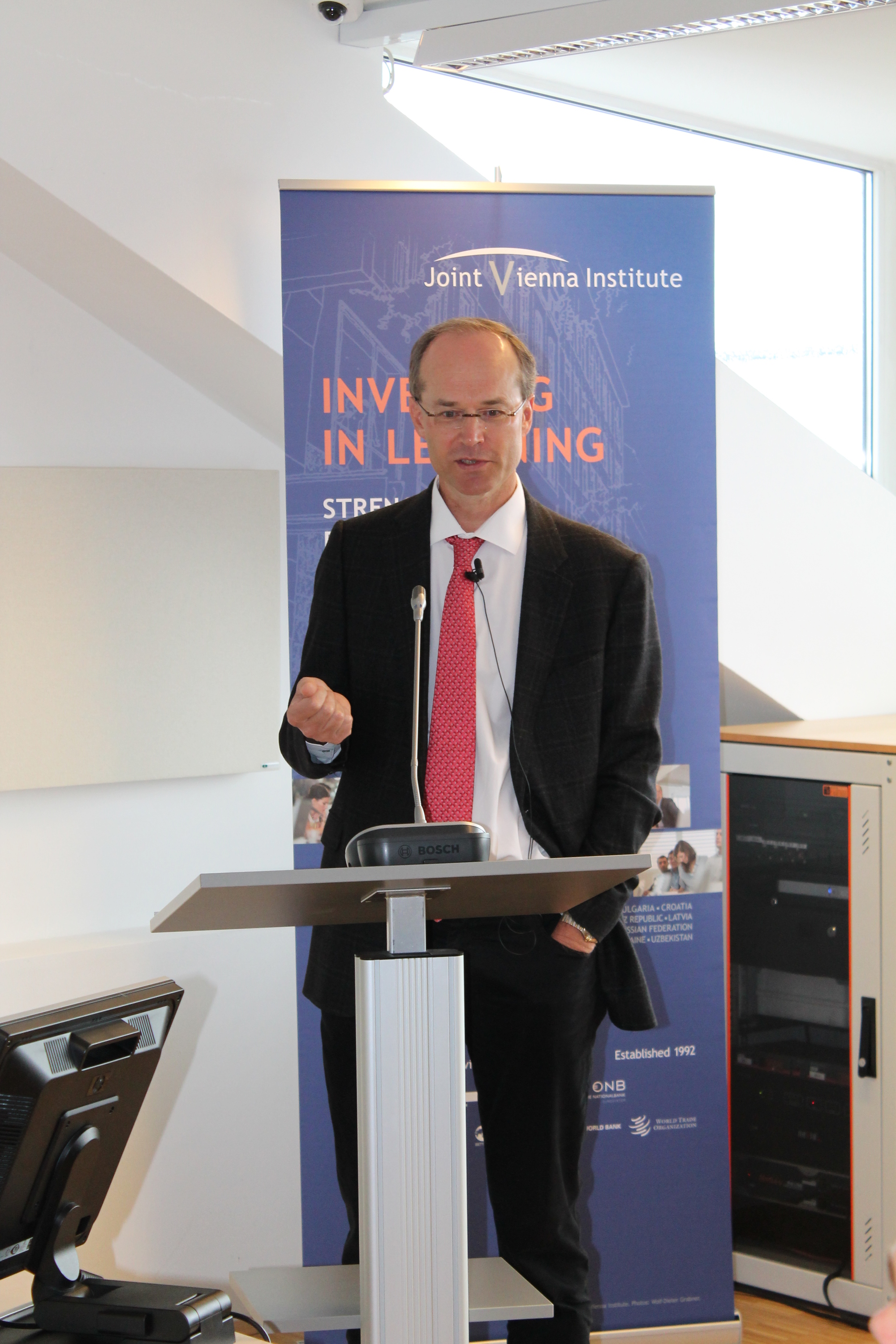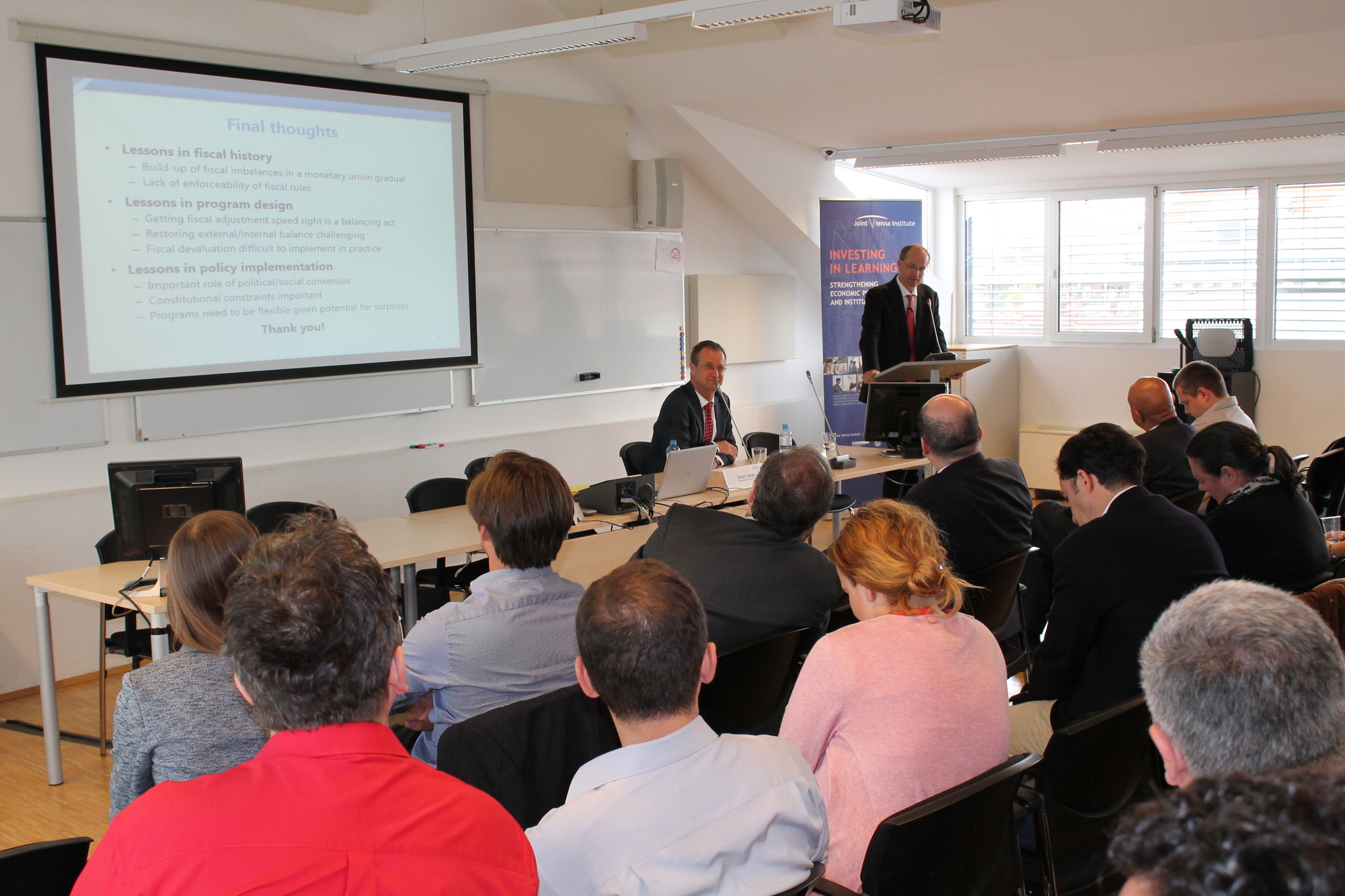Friday, July 11
Presenter
Albert Jaeger, IMF Senior Resident Representative for Portugal
Summary
On July 11, 2014, Mr. Albert Jaeger, Senior IMF Resident Representative for Portugal, delivered an Open Lecture at the JVI on “Fiscal Issues in Portugal's EU-IMF Program” as part of the IMF course on Macroeconomic Impacts of Fiscal Policy. As the IMF’s “Res Rep” for the last three years, he was well positioned to give an insightful account of Portugal’s EU-IMF program, which ended on June 30, 2014.
After JVI Director Norbert Funke introduced him, Mr. Jaeger began with a quote from boxing champion Mike Tyson: “Every boxer has a plan until he gets punched in the face.” Rephrased for the Portuguese circumstances, he said, that could be “Everybody has a fiscal plan until they’re hit by a nasty surprise.”
Mr. Jaeger spelled out three main takeaways from the Portuguese experience:
- Even when fiscal rules seem very strict on paper, very large fiscal imbalances can pile up gradually;
- High debt and weak external competitiveness are difficult to correct when the policy toolbox is limited;
- Fiscal policy implementation in the real world is rarely smooth.
Portugal’s fiscal position would hardly have rated a discussion up to the 1990s because the country enjoyed some of the highest growth rates in the OECD. But unlike Ireland and Greece, Portugal’s growth trajectory had substantially slowed in the 2000s and had almost come to a standstill in the run-up to the financial crisis. Portugal’s external imbalances were large, pushing net foreign debt up to about 100% of GDP by 2010. Capital inflows, mostly from other euro area countries, went mainly to the non-tradable sectors and supported a surge in credit that increased the leverage of both businesses and households. Clearly, when the global financial crisis hit, Portugal was already in a difficult position.
The difficulties were not a surprise to everyone. In 2007, Olivier Blanchard—today the IMF’s chief economist—was already warning Portugal that its unit labor costs were excessive; to restore competitiveness, productivity had to go up, wages had to go down, or both. However, since then, other economists have argued that the country’s slow growth and imbalances were rooted in distorted credit allocation or in basic institutional problems. So no simple, linear macro story emerged.
Even though it was one of the founding members of the euro area, Portugal continuously failed to meet the Maastricht 3% of GDP deficit criterion. Weak institutional restraints on deficit and spending biases coupled with a welfare state faced with sudden slowdown in growth made it hard to implement medium-term plans to reduce the budget deficit. With an average deficit of about 5% of GDP, Portugal exceeded the Maastricht limit every single year since 1999, to the point that by 2010 government debt had hit 100% of GDP. Reallocating expenditures from the official budget to public-private partnerships and state-owned enterprises further masked the full extent of fiscal imbalances.
The crisis tore the veil off the underlying problems. “As bond yields rose above 7% in early 2011, there was an implicit understanding that Portugal would have to call the Troika,” Mr. Jaeger explained. The EU-IMF program, which started in May 2011, had three main objectives:
- Restore and anchor fiscal discipline, by making the necessary changes in the fiscal framework;
- Improve Portugal’s competitiveness;
- Clean up highly indebted balance sheets.
Monetary union membership, high public and private debt, and the need to uphold the social and political consensus limited Portugal’s policy options. And there were other constraints:
A core measure in the program was fiscal devaluation in order to restore Portuguese competitiveness. This was to be achieved by decreasing labor cost, either directly or by cutting employer social contributions, and offsetting the effect on the budget by increasing indirect taxes or by cutting spending. But fiscal devaluation turned out to be a measure that is difficult to implement in practice. Furthermore, the interpretation of the Portuguese Constitution turned into an unexpectedly tight constraint on cutting expenditures, as it put tight limits on cuts in public wages and pensions, leaving large tax increases as the option of last resort.
Mr. Jaeger detailed the pros and cons for fast versus more gradual fiscal adjustment, which was ultimately much less forceful than was originally planned. The program’s original fiscal targets were also missed because the external environment worsened, fiscal multipliers were larger than assumed, and the automatic fiscal stabilizers were larger than expected.
Mr. Jaeger’s conclusions were that although many of the program goals were met, particularly restoring the sovereign’s market access and rebalancing the external accounts, it will still take considerably more reform and consolidation efforts to turn the Portuguese economy into a success story. His presentation stimulated a lively follow-up discussion that ranged from legal issues to transparency rules.












